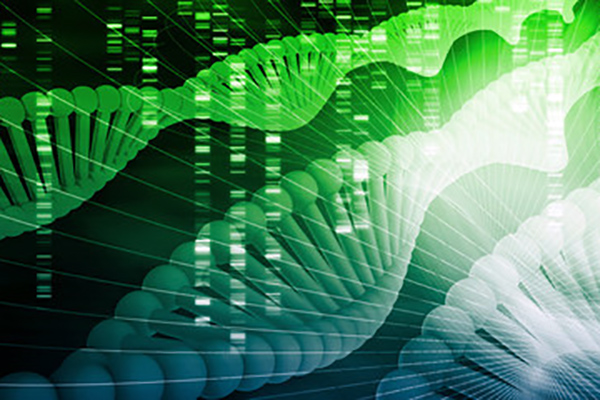The academic medical center is applying cutting-edge science with the hope of reducing or eliminating the cause of PKU, the most common inborn error of metabolism
USF Health Genetics and Metabolism and Tampa General Hospital (TGH) have teamed up to deliver one of the world’s first investigational gene therapies for the rare inherited disease phenylketonuria (PKU) as part of a pivotal multisite clinical trial.
USF Health is one of four sites – three in the U.S. and one in the United Kingdom – currently participating in a phase 1/2, open-label clinical trial testing the safety and effectiveness of an adenovirus vector-mediated gene therapy for PKU. The study expects to enroll up to 100 patients ages 15 and older. Many PKU patients struggle to stick to a strict low-protein diet needed to control harmful levels of the amino acid phenylalanine (Phe), which is not metabolized in people with PKU.
“While rare, PKU is the most common inborn error of metabolism. So, it’s kind of mind-blowing to me that we could be on the verge of potentially offering a cure to patients with a critical enzyme deficiency identified at birth,” said site principal investigator Amarilis Sanchez-Valle, MD, an associate professor of pediatrics at the USF Health Morsani College of Medicine, who treats children and adults with metabolic disorders. “There are questions yet to be answered, but we’re hopeful about the prospects for a one-and-done gene therapy approach that may (permanently) fix PKU.”
The first patient intravenously administered the investigational gene therapy (called BMN 307) at Tampa General in early May was the second PKU patient in the U.S. to receive the treatment as part of the multicenter trial, Dr. Sanchez-Valle said. The USF Health Metabolic Genetics Clinic has identified several more potentially eligible patients for this trial.
Babies born with PKU have defects in a metabolic gene that makes the enzyme phenylalanine hydroxylase (PAH). This PAH enzyme is needed to break down Phe, an amino acid in all protein-containing foods, including chicken, meat, eggs, dairy, nuts, grains, and legumes. Left untreated, high or unstable levels of Phe become toxic to the brain and may lead to serious neurological and neuropsychological complications, affecting the way a person thinks, feels, and acts. The lifelong condition is controlled primarily by eating a very restrictive, low-protein diet that is difficult to maintain.

Principal investigator Amarilis Sanchez-Valle, MD, associate professor of pediatrics at USF Health, treats children and adults with metabolic disorders, including PKU.
Dr. Sanchez-Valle and the other trial investigators will assess the BMN 307 gene therapy’s ability to work well without diminishing over time. They will monitor study participants enrolled in the trial for five years, evaluating whether a single dose of the gene therapy can restore natural Phe metabolism, normalize Phe levels in the blood, and enable patients with PKU to eat normally.
Two drugs are approved in the U.S. to help treat PKU. Kuvan, a PAH enzyme activator, gives a small percentage of patients slightly more flexibility in their diet. The injectable enzyme substitution Palynziq, available for adults only, is the first allowing patients to eat a normal diet. However, the drug carries a warning about the possibility of severe immune reactions, and some patients are averse to giving themselves daily injections and risking side effects.
The gene therapy uses an adeno-associated viral vector (virus engineered to be harmless) to shuttle a fully functional copy of the PAH enzyme gene into the liver cells where Phe is broken down. Once the vector infects the liver cells, the cells read the code from the normal gene and begin naturally reproducing the missing or deficient PAH enzyme.
Preclinical studies of BMN 307, which included years of dosing, safety and other data collected in laboratory models, were promising, Dr. Sanchez Valle said. “Hopefully, this experimental gene therapy will provide a biochemical cure. But it’s important to emphasize that we are not changing the patient’s DNA. Their genome remains the same, because the vector does not target and deliver the working gene to every cell in the body.”
The USF Health-TGH multidisciplinary team implementing this gene therapy clinical study includes the regulatory staff and study coordinators who make the trial possible, the hospital pharmacists who painstakingly prepare the IV suspension containing the gene-carrying vector, and TGH hematology-oncology nurses with expertise in drug side effects.
The same day the team administered their first PKU gene therapy, Dr. Sanchez-Valle visited the neonatal intensive care unit to check on a newborn diagnosed with PKU. (Because PKU symptoms can be so serious, the U.S. and many other countries screen infants at birth to ensure early diagnosis and treatment to avoid intellectual disability and other complications.) The infant’s mother had two other children with PKU. Babies with the metabolic disorder typically cannot be breastfed because controlling protein-rich milk intake, and therefore high or unstable Phe levels, poses a significant challenge.
“Just think if sometime within the next few years we could potentially provide that mother’s children with one infusion so they would not need to follow an extremely restrictive diet. It would also give new mothers like her the opportunity to nurse their babies without anxiety about PKU interfering,” Dr. Sanchez-Valle said.

People with the inherited metabolic disorder PKU must strictly avoid protein-rich foods to control harmful levels of the amino acid phenylalanine (Phe).
Advances in technology have opened new ways of delivering targeted gene therapies, including creating other vectors to deliver therapeutic genes, like lentiviruses and lipid nanoparticles, as well as possibly fixing PAH mutations with gene editing tools such as CRISPR.
“Our team is starting with PKU, but we believe down the line gene therapy may offer more options for patients with other rare diseases,” Dr. Sanchez-Valle said. “We’re excited about applying cutting-edge science that helps make (medical) history.”

